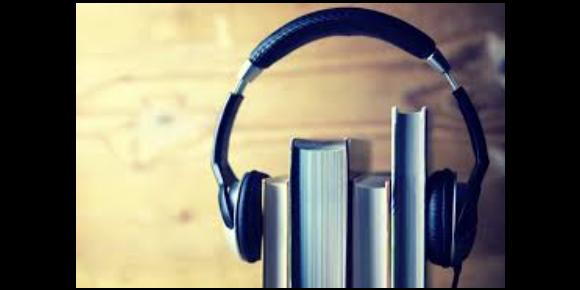
Audiobooks can be an invaluable resource to promote better hearing. Here's how.
Adjusting to new hearing aids can be a challenge, as you’ll hear new sounds you might not have heard in years. That’s why hearing rehabilitation is so important as you get used to wearing hearing aids. Without proper at-home management and care, auditory rehab can be difficult. Simply taking time for yourself each day, however, can help your hearing and improve your mood.
Many tools can help with hearing rehab at home, but one of the most widely recommended is the use of audiobooks, which allow you to hear the text of a book. Read on to discover how audiobooks for hearing rehab can be invaluable, and why they might be the best fit to support you and your new hearing aids:
How audiobooks can be helpful
Oral storytelling has long been a tradition for practically as long as humanity has existed. So, what better way to rehabilitate your ears than with something that’s a part of our everyday lives? Audiobooks provide that sense of connection – without the background noise or hearing issues that can arise from regular conversions. This way, you can focus entirely on the words being spoken.
Because of the clarity and accessibility of audiobooks, they make a fantastic place to start for those with hearing issues. Audiobooks also come in many different forms, from simple and easy-to-follow storylines to more complex and overarching themes, all of which can help to slowly improve listening comprehension and the ability to follow a conversation. Audiobooks are essentially a one-sided conversation, enabling you to listen and learn how to comprehend a singular voice, before progressing to real-life, two-way communications.
The use of audiobooks may be suggested as a supplemental treatment by an auditory rehab professional, or you may choose to undertake additional self-rehabilitation on your own. Whichever is the case, sourcing audiobooks that are suitable for you is the first step. With careful consideration, rehab can be as enjoyable as it is practical – particularly with stories you love and enjoy.
A plan for using audiobooks
To get started, begin with audiobooks featuring a clear, recognizable, and easy-to-understand voice with little background noise. From there, you can build up to voices with different accents, or ones that are slightly harder to understand, to mimic the way you’d listen during a conversation.
For those with good eyesight, it’s often recommended to read along with the audiobooks – this can be used to train the brain into making a connection between what you are reading and hearing. A good mixture of subject matter, for example, fiction and non-fiction, can provide more scope for those progressing with their rehabilitation. Starting with a book you know or are familiar with can allow you to start slow and build up steam over time.
Making audiobooks work for you
Getting the most benefit from audiobooks won’t be the same for everyone with new hearing aids. Some people may struggle to concentrate, while others will quickly and easily grasp the concept and audio. There’s no wrong way to use audiobooks, so don’t be afraid to take a step back or move forward to suit your personal comfort level.
For beginners, it’s recommended to listen to an audiobook and read the matching book at the same time, with breaks when needed. Once you’re comfortable with this step, the next is simply listening to the audiobook alone and concentrating on the story. This can be done for short bursts and increased over time. Listening to audiobooks for long periods is the final stage of rehabilitation. From there, it’s worth looking at other tools for auditory rehab or talking to a medical professional to see how your hearing could be improved further.
Resources for audiobooks
There are many resources available for audiobooks, though the first place you may want to consider looking is in your local library. Doing so eliminates any of the costs of hearing rehab and provides you with a wide selection to choose from.
For those looking for additional resources online, these options may be the ideal choice:
Google Play Books
Google Play Books is an alternative to big-name audiobook brands and is available through the Google Play store on Android smartphones and tablets. The app has an easy to use interface and also offers ebooks, which can be downloaded and read on a screen.
Audible
The most popular audiobook app, Audible, has a vast library of different audiobooks to pick from, making it the ideal choice for those with specific tastes. Audiobooks can be purchased as part of a subscription or one at a time, and often you will receive free credits upon signing up.
LibriVox
LibriVox is an Android app that provides free versions of classic books in audiobook form. For those on a budget, this app offers the ideal option with 24,0000 free traditional options on offer and easy use via Bluetooth® if required.
Click here to access the original article by Signa

